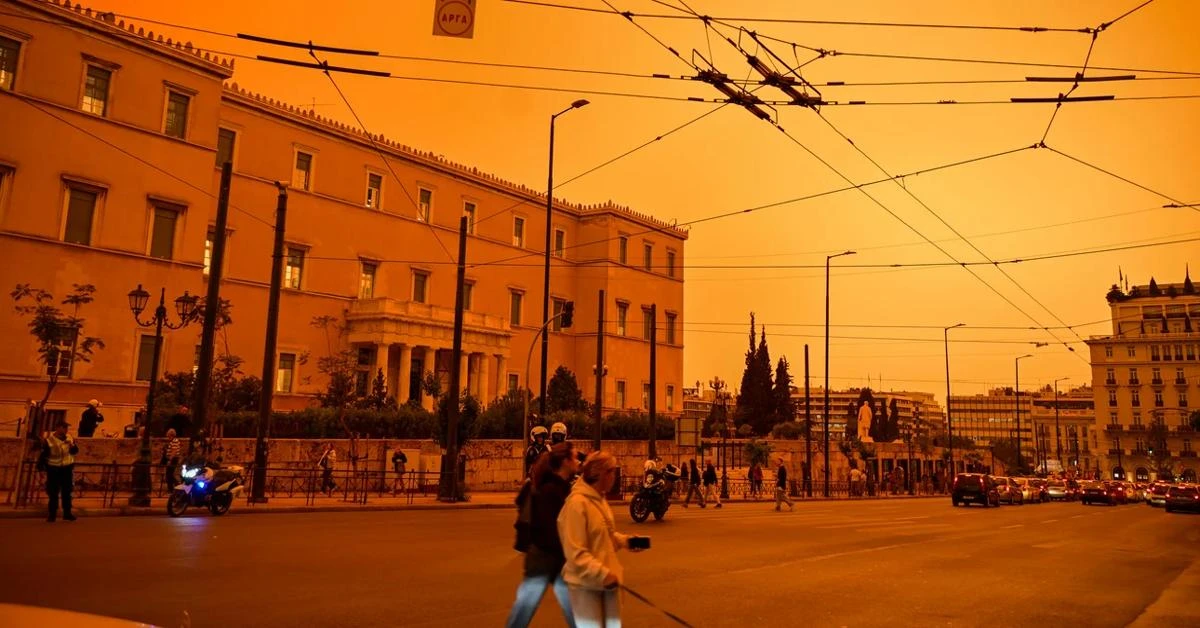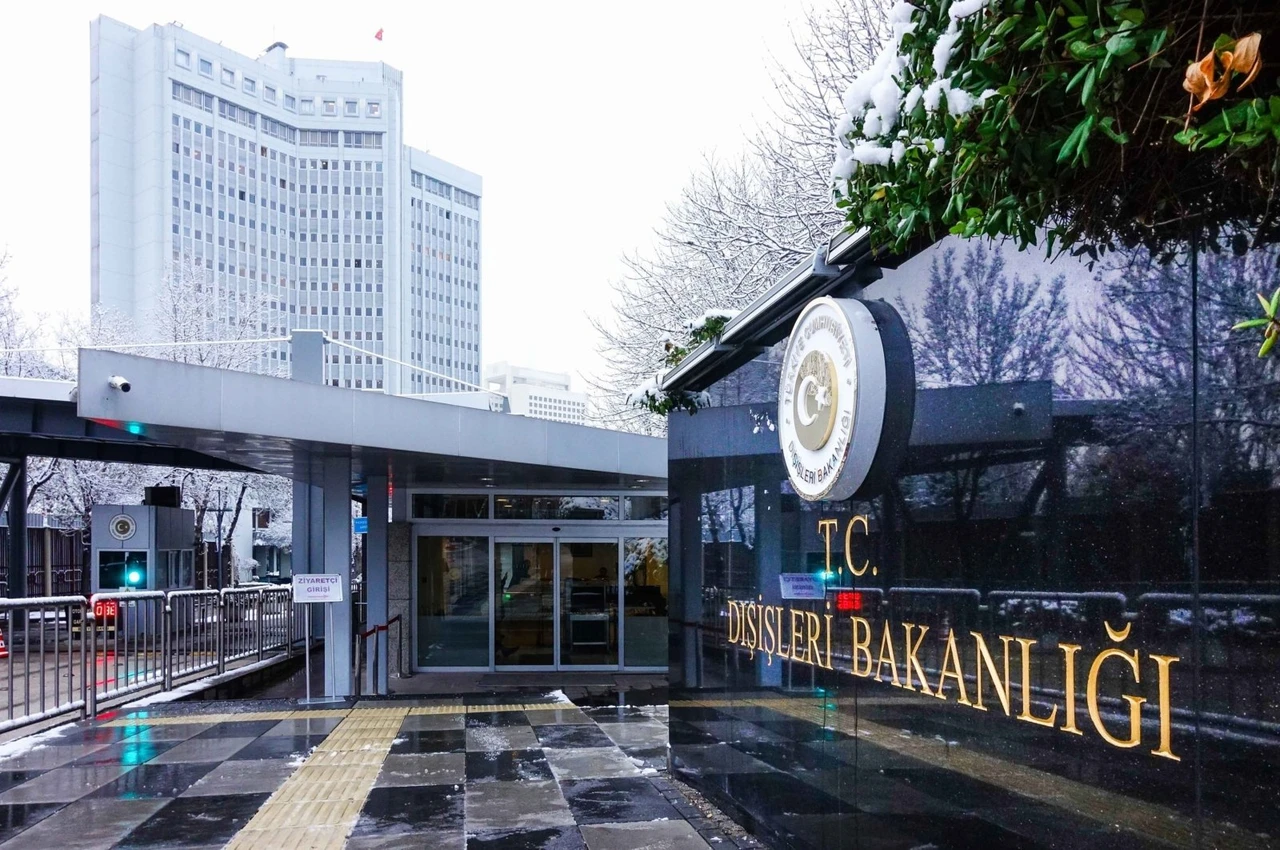Health alerts issued as African dust covers Türkiye and Greece

The dust phenomenon known as ‘Minerva Red’ leads to muddy rains and hazy atmospheres across Türkiye and Greece, affecting outdoor activities and public health
On Wednesday, residents of both Türkiye and Greece will face unusual weather conditions marked by persistent African dust, dubbed “Minerva Red,” and sporadic rainfall affecting various regions.
The National Observatory of Athens’s DUST/METEO system has been tracking the African dust event, which began impacting the region on Tuesday.
According to meteorological updates, this has notably decreased air quality, “creating a suffocating scene in many areas.” The phenomenon will reach its peak on Wednesday and gradually subside as the dust moves eastward across the Aegean Sea.
In Greece, the meteorological agency reports, “Clouds and African dust will cover much of the country today, with localized rains expected mainly in the western, central, and northern mainland until the afternoon.”
In Türkiye, the General Directorate of Meteorology issued a warning about dust clouds from Africa transforming rainfall into muddy rain. This has caused significant inconvenience in regions like Tekirdag and Edirne, where rain combined with dust has led to muddy conditions.
A taxi driver in Tekirdag expressed his frustration: “It rained mud. The car was completely covered in mud, including the windows. I washed it in the morning and had to wash it again.”
In Attica, Greece, the day is marked by sparse cloudiness, with west-northwest winds blowing at speeds of 4 to 5 on the Beaufort scale and temperatures ranging from 14 to 24 degrees Celsius.
Thessaloniki will experience few clouds, occasionally increasing, with variable winds at 3 to 4 on the Beaufort scale and temperatures from 11 to 22 degrees Celsius.
The islands of the Ionian Sea, along with regions of Epirus, Western Greece, and the Western Peloponnese, will face intervals of increased cloudiness, potentially leading to local showers, mainly in the mountains. By nightfall, conditions are expected to worsen from the west, with local rains and isolated thunderstorms in the northwest.
With high concentrations of Saharan dust affecting the air quality, health officials advise vulnerable groups, particularly those with chronic illnesses and the elderly, to take precautions. Professor Orhan Sen from Türkiye highlighted the concerns, stating, “There are beneficial minerals in the dust, but we shouldn’t breathe it in. Values above 250 definitely require wearing a mask.”
As the “Minerva Red” event progresses, the weather is expected to improve across Türkiye and Greece, with the dust concentration decreasing. However, residents and visitors in affected areas should stay informed through local weather forecasts and take necessary precautions to protect their health and property during this unusual weather period.
Source: Newsroom



